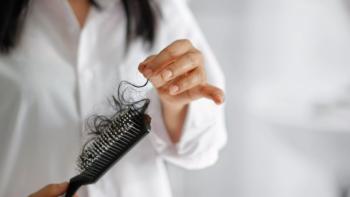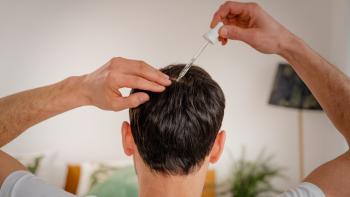Trichological Hair Loss Service
Complete our online assessment today and speak to one of our expert Trichologists, getting right to the root cause of hair loss and supporting you every step along your journey.
Treats
Hair Thinning in women (also known as Female Pattern Hair Loss, Reduced Hair Volume, Androgenic Alopecia)
How can the Contraceptive Pill Help with Hair Thinning?
Hair thinning is caused by a genetic condition — inherited from either parent —wherein your hair follicles are sensitive to androgens (male hormones). All women naturally have androgens in their bodies, but only some have hair follicles that react to them. If you have this sensitivity, once it is triggered, your hair follicles will gradually miniaturise and the hair will grow back thinner over the years. This reduces the volume and length of your hair, eventually making your scalp more visible.
Some birth control pills can protect hair follicles which may help slow this thinning process, because they increase your oestrogen levels and/or diminish your levels of testosterone. Oestrogen is a hair-friendly hormone — it helps keep your hair in its growth phase for longer and stops it from moving into its shedding phase.
Please note: Certain contraceptive pills can have some androgenic (male hormone-like) action, and can therefore exacerbate hair thinning if you have a pre-existing tendency. If you have noticed a change in the density of your hair, increased scalp hair shedding, or facial hair growth since starting or stopping an oral contraceptive, we suggest you consult with your doctor and/or a Trichologist right away.
Which Pills Can Help with Hair Thinning?
A number of contraceptive pills have an anti-androgenic action, and so may help to prevent further hair thinning in some women. Examples include:
• Yasmin
• Dianette
• Valette
• Cilest
Examples of birth control pills that may exacerbate hair thinning for some individuals, include:
• Microgynon
• Plan B
• Loestrin
The Mirena Coil
The Mirena Coil is an intrauterine device, sometimes given to women as a means of controlling heavy menstrual bleeding, or as a convenient method of contraception. The progestogen released by the Mirena Coil is called levonorgestrel, which can exacerbate hair thinning in some women, due to its androgenic action. However, the amount of hormone released daily by the Mirena Coil is considerably less than the same hormone taken in an oral contraceptive, such as Microgynon; so for some women, the adverse effect on their hair may only be fractional.
Please note: Always consult with your doctor or gynaecologist before changing, starting or stopping any type of hormonal contraceptive.













